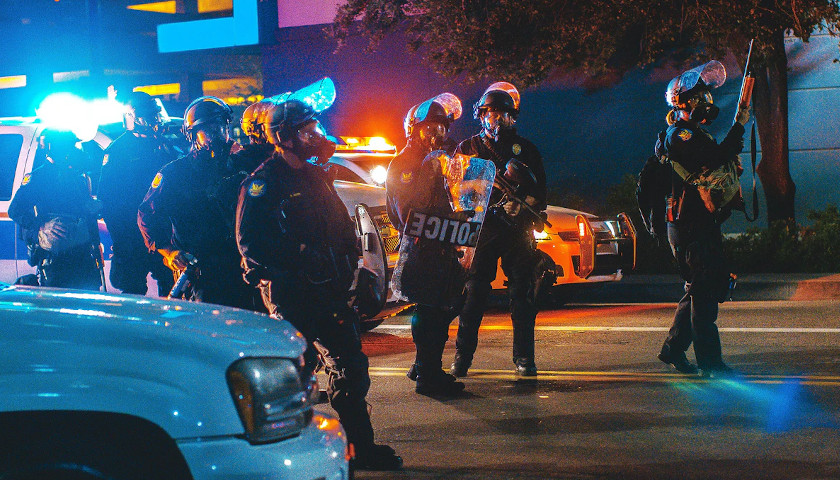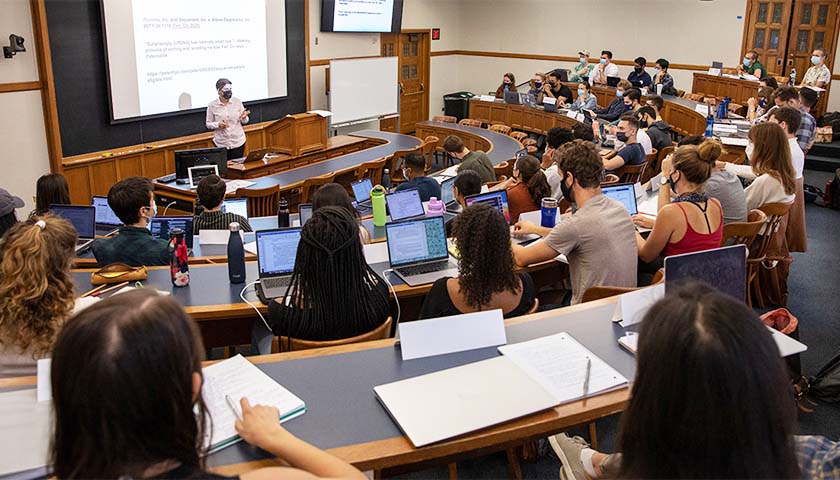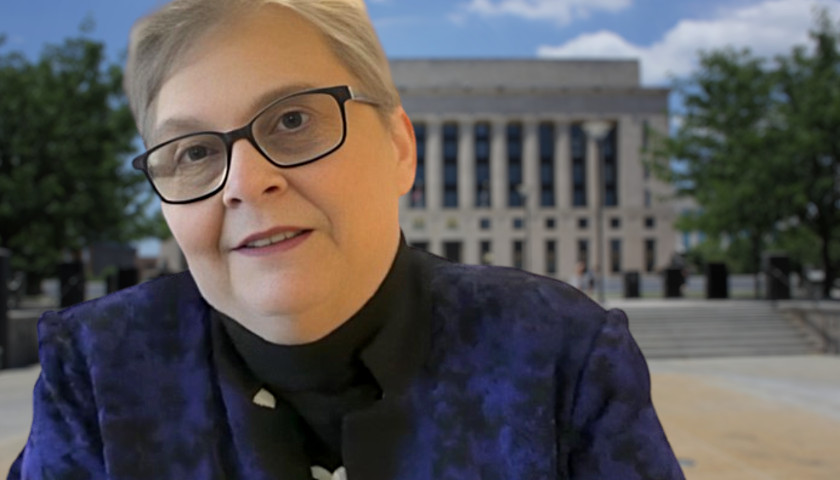Any time an officer-involved shooting or alleged police misconduct occurs, community oversight boards are thrust center stage. In response to activists’ social justice demands over the years, some of Tennessee’s major cities – like Memphis, Knoxville, and Nashville – have established versions of community oversight boards to review police misconduct and accountability. It comes as no surprise, then, that the majority within these community oversight boards share similar social justice inclinations.
A large portion of members’ concerns has to do with race, such as racial profiling in arrests or traffic stops, or concerning officer-involved shootings. In its latest meeting, Knoxville’s community oversight board expressed surprise that no racial discrimination claims were filed per their quarterly report. Other popular topics include equity, restorative justice, immigration, and mental health.
The Tennessee Code has established certain provisions for these boards. By law, they are limited to conducting reviews as well as issuing advisory reports and recommendations. They can’t issue subpoenas for documents or compel witness testimony.
It appears that lawmakers believe there is more to be done. The Tennessee General Assembly is considering additional standards for these groups. Legislators wants to require that all community oversight board members go through a citizen’s police academy. If not, they would temporarily lose authority until all members complete the academy. The lack of authority wouldn’t render them defunct, however. Members could still meet and review cases without their authority – they just couldn’t exercise certain powers like voting.
Certain Democratic legislators expressed their disdain for the bill, saying it would prevent communities from overseeing police. State Representative Carson (Bill) Beck (D-Nashville), for example, defended the Nashville COB’s integrity.
“Everything’s going well,” stated Beck. “[This new bill is] a poison pill to the whole community oversight process.”
Beck’s constituents may beg to differ. As The Tennessee Star reported over the past few weeks, recently-resigned member Ovid Timothy Hughes isn’t a registered voter, as he’d claimed – he is a convicted felon who can’t register to vote as required by law, the Secretary of State’s office confirmed.
Furthermore, The Star hasn’t been able to discover why Hughes resigned. From conversations with various Metro Nashville officials involved with and in the COB, only Hughes may know the reason for his resignation – and he hasn’t responded to The Star’s request for comment.
Other officials have gone quiet concerning this matter. Nashville COB Chair Andres Martinez hasn’t responded to The Star. COB Executive Director Jill Fitcheard hasn’t returned the calls or emails of The Star, despite answering our initial phone call to her on March 5. In our one and only conversation with her, Fitcheard appeared to have not known about Hughes’ felony conviction or his ineligibility to vote.
The board’s consistency of thought isn’t likely a reflection of the community. The Nashville COB is comprised of a majority of social justice advocates critical of police. First Vice-Chair Jamel Campbell-Gooch has asserted that any police responses that challenge the COB are “a normal racist response to Black people.”
In response to the violent riots that swept the nation and took over Nashville for a time following the death of George Floyd, Campbell-Gooch suggested that the way to stop riots would be through sharply reducing police funding and making them totally subordinate to civilian oversight.
“4 ways to stop rioting: 1. Universal basic income 2. Civilian oversight of police that are responsible for hiring & firing, as well as directly in control of your local chief of police. 3. Break up the large police unions to decentralize power into smaller, separate, and autonomous union chapters. 4. Demand majority of local public safety budget to go toward funding neighborhood mediation programs administered by community members who live in the area,” wrote Campbell-Gooch. “THESE ARE ALL THINGS YOU CAN RESEARCH AND ADVOCATE FOR TODAY AND EVERY DAY MOVING FORWARD. BUILD A GROUP, LEARN, DISCUSS, AND ACT TOGETHER.”
2. Civilian oversight of police that are responsible for hiring & firing, as well as directly in control of your local chief of police.
— Jamel Campbell-Gooch (@nashvillered) May 31, 2020
Likewise, Second Vice-Chair Phyllis Hildreth called for police to be defunded in the wake of Floyd’s death.
“Spending on police means divesting from communities,” stated Hildreth.
Bookmarked:
Spending on police means divesting from communities https://t.co/RNsjOqMz3m via @wordpressdotcom
— pdkh. period. (@phalcon7) June 4, 2020
Another member, Arnold Hayes, has insisted that a localized version of the George Floyd Justice in Policing Act of 2020 be instituted. In part, the act would punish law enforcement for any disproportionate traffic stops, interviews, and pedestrian stops based on racial demographics.
When the time came to fill four empty seats within the board last month, Metro Nashville City Council only selected individuals who exhibited similar social justice inclinations. They largely rejected members nominated by the Fraternal Order of Police (FOP) and those who gave any semblance of a positive perspective of police during their interviews with the council’s Committee on Rules, Confirmations, and Public Elections.
Memphis and Knoxville, the elder predecessors to Nashville’s COB, aren’t too different.
Memphis’s Civilian Law Enforcement Review Board (CLERB) has members like Vice Chair David Acey, Sr., who shared that his heart was full watching the protests that engulfed the nation last summer following Floyd’s death. However, other CLERB members offer varied perspectives on policing.
Another member and Memphis City Council member, Dr. Jeff Warren, recently sponsored a resolution opposing the Byhalia Pipeline; those in support of the resolution have equated its construction to environmental racism and social injustice.
In December, CLERB relented and appointed a retired police officer, Reverend James Kirkwood, as its chair. This decision came after the community lamented over CLERB’s ineffectiveness for years due to lack of cooperation from Memphis police.
Reflections from members of the Knoxville Police Advisory & Review Committee (PARC) indicate that race may contribute to the picture of ideal membership for Knoxville government. Rosa Mars, who is PARC Chair and Latina, implied that her race was a contributing factor to her appointment.
“I’m the perfect board member,” stated Mars. “I have the time, I’m the right color, I have the resources, and I’m not afraid to speak out.”
PARC Executive Director LaKenya Middlebrook, a heralded speaker on social justice issues and previous chair of the Knox County Democratic Party, has equated mass incarceration to chattel slavery.
These uniform perspectives on police oversight and criminal justice may have pushed state lawmakers to propose a bill like HB0374 in the first place. Since State Representative Glen Casada (R-Franklin) introduced the bill in January, and State Senator Mike Bell (R-Riceville) submitted its companion in February, it has progressed steadily.
The bill is scheduled to appear before the House next Thursday.
– – –
Corinne Murdock is a reporter at The Tennessee Star and the Star News Network. Follow her latest on Twitter, or email tips to [email protected].






The COB will continue to be an embarrassment. The COB is an organization that believes the police are always wrong . It is a sad commentary that COB was even formed. Democrats have to play to their minority base and that’s what they have done! COB is useless.
This isn’t an anecdotal comment. These are communists and/or marxists. They infiltrated while people were busy with family and lives. They are staffers in each of the Cooper’s office, they are in the non-prodits, etc. They also have a degree of control thanks to much of the local media.
Never thought this would happen in this country, but here we are.
The same sort of idea as the old Soviet Union Communist Party Political Commitees Th Democrat Commissars will make policy and run Police Departments and other Government functions and Businesses for the advantage and control of the Democrat Marxists NE Fascists.. You dare not counter the Democrat Marxist policy or ideology. You dare not interfere with the Soviet Citizens Commies like BLM, ANTIFA, and others. They run riot and are protected by the Party. opposition Prtesterswll be dealt with harshly as n the DC Protesters yet BLM and ANTIFA continue their terrorism in Portland and other Democrat Hells across the Country. These Mobs dictate what Government will do, and what statues they have to tear down and where money goes in these Cities/Hells.. It is spent on them.the communities of the Terrorists! We may elect whoever we want but the Democrats through their Social Justice Committees will give the marching orders! These Democrat/Marxist Oversight Boards should be done away immediately. We elect Citizens for office to do these jobs, not Democrat Social Justice Warrior Boards and their Mobs to terrorize and overrule!
The Dimming
Produced by Dane W
This is a must watch eye opener for anyone who doubts how far this experiment has gone !
If they can’t pass the academy, they shouldn’t be sitting on the board PERIOD. Joe Blow citizens don’t sit on medical or legal review boards. They don’t get to decide if a Dr. or lawyer performed their jobs adequately. How can anyone sit on a review board for anything, or over anybody, when they have no experience, education or working knowledge of or in the profession they are sitting in judgement of?
This COB as it is now, is nothing more than a lefty excuse to hire over paid, politically connected SJW axe grinders.